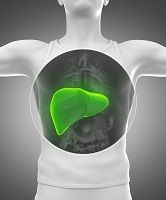Article
Hepatic Fibrosis Has Strong Genetic Component
Author(s):
Researchers from the University of California, San Diego evaluated 60 pairs of adult twin participants using liver MRIs between January 2012 and January 2015 in order to investigate the heritability of hepatic fibrosis.

Genetic factors contribute to hepatic fibrosis equally as much as environmental factors do, according to findings published in Gastroenterology.
Researchers from the University of California, San Diego evaluated 60 pairs of adult twin participants using liver MRIs between January 2012 and January 2015 in order to investigate the heritability of hepatic fibrosis. The investigators also examined the heritability of nonalcoholic steatohepatitis, a disease which is similarly defined to alcoholic liver disease but occurs in patients with little to no alcohol intake.
There were 42 monozygotic (identical) twin sets and 18 (dizygotic) fraternal twins with an average age of 45 years and an average body mass index of 26.5 included in the study, who all resided in the Southern California area. The researchers collected other data such as medical history, physical examinations, fasting laboratory test results, and liver health from the participants.
Previous research indicated that the causes of hepatic fibrosis were viral hepatitis C infections, alcohol abuse, poor dietary habits/ obesity, and nonalcoholic steatohepatitis, the researchers said. Instead, they found that hepatic fibrosis and steatosis are passed on with about a 50 percent rate of heritability. They wrote that this finding indicates liver disease is more heritable than body mass index.
In 26 of the 120 total patients, the researchers discovered nonalcoholic fatty liver disease, which the study authors said is often a precursor to the development of more serious conditions. The investigators further determined that the presence of hepatic steatosis was correlated between identical twins, but not fraternal twins.
“This evidence that hepatic steatosis and hepatic fibrosis are heritable traits has major implications,” the study’s first author Rohit Loomba, MD, explained in a press release. “It means that we can now look for the relevant genes as potential therapeutic targets.”
Nonalcoholic fatty liver disease is said to affect 80 to 100 million Americans, while nonalcoholic steatohepatitis is said to affect about 18 million Americans, the release continued.
Loomba added that there are more than a dozen clinical trials surrounding hepatic steatosis and fibrosis underway in the medical community. The researchers’ next study will expand to focus on the role of the microbiome in the degree of heritability of nonalcoholic and alcoholic liver diseases.





